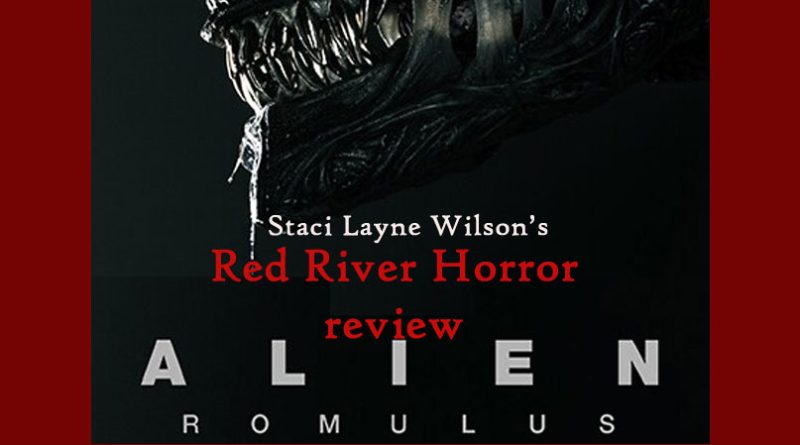Alien: Romulus (2024) | Review
In the vast, dark expanse of space, no one can hear you yawn. Fortunately, Alien: Romulus doesn’t give you much chance to do so. It’s fast-paced, but that’s not quite enough for this flick to rate the coveted maximum stars.
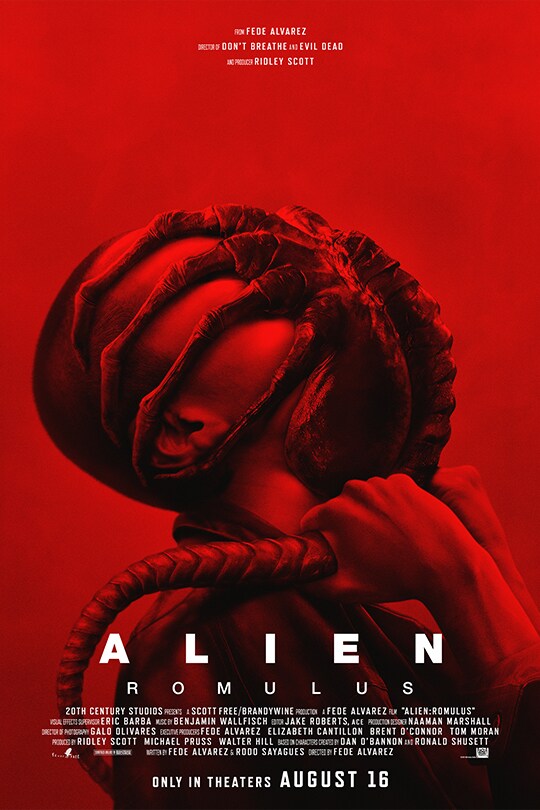
Set in 2142 (post-Alien, pre-Aliens), Romulus follows a crew of space colonists who decide to take a detour from their mining gig to raid an abandoned space station. Because nothing says “career advancement” quite like piracy, right? Little do they know, they’re about to get a crash course in extraterrestrial biology—the kind that tends to end with a lot of crash and very little course.
Our protagonist, Rain Carradine (Cailee Spaeny), finds herself reluctantly leading this motley crew of soon-to-be cannon fodder into the great unknown. Spaeny commands the screen with the determination of someone who’s just realized they left the oven on… in another galaxy. Alongside her is Andy (David Jonsson), an affable android whose programming apparently included an upgrade in scene-stealing. Their performances and chemistry are truly the glue holding this acid-blooded adventure together.
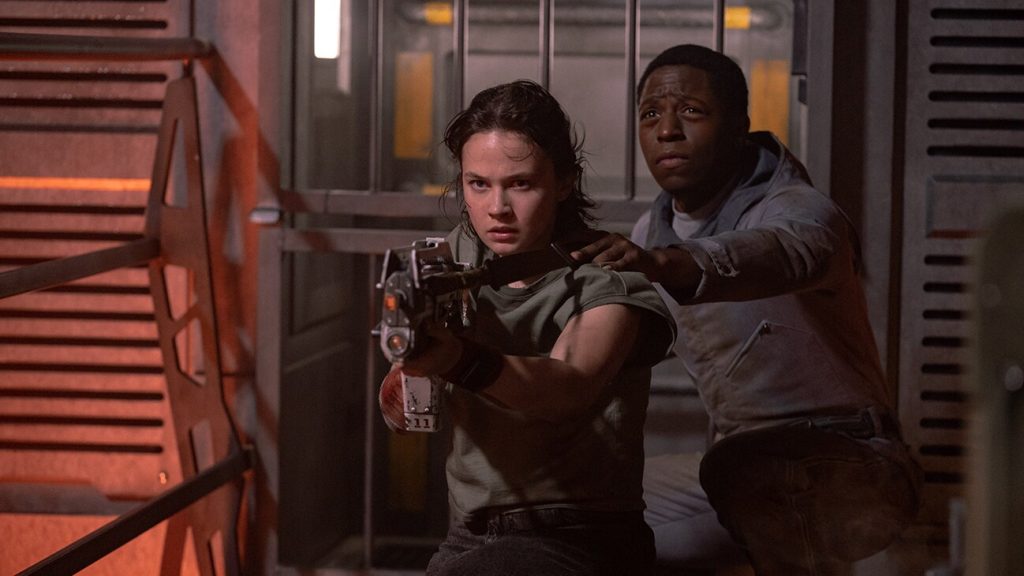
At the helm of this xenomorphic fright fest is Fede Álvarez, the lauded Uruguayan director known for his 2013 Evil Dead remake and the house-of-horrors thriller Don’t Breathe. Álvarez brings his trademark grittiness to Romulus, but surprisingly, he’s left some of his gore-loving tendencies back on Earth. Fans of his previous work might find themselves wishing he’d cranked up the viscera-meter a notch or two.
That’s not to say Romulus doesn’t deliver on the franchise’s psychosexual, gooily gory trademarks. The film still serves up a buffet of phallic and clitoral imagery that would make Freud reach for his notebook. It just never quite reaches the hyperdrive levels of grotesquerie that Álvarez’s previous works led us to expect. Perhaps he’s saving the really sticky stuff for the director’s cut.
Álvarez and co-writer Rodo Sayagues have opted for a more straightforward approach compared to Ridley Scott‘s recent entries in the franchise. While Prometheus and Covenant went for philosophical musings and origin stories, Romulus is content to ask the simpler questions in life, like “How do we not become alien appetizers?” It’s a return to the action-horror roots laid down by James Cameron‘s Aliens, trading deep space contemplation for deep space confrontation.
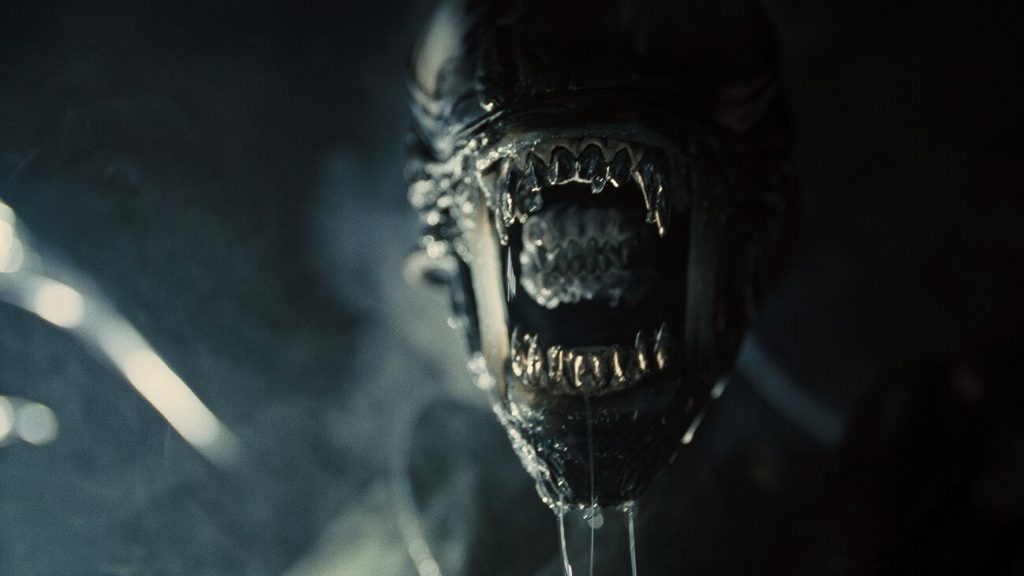
This back-to-basics approach mostly works in the film’s favor. Romulus might not have the punch of Alien or the visual grandeur of Prometheus, but it makes up for it with a lean, mean storytelling machine that keeps the tension ratcheted up—some scenes are more intense than a staring contest with a Weyland-Yutani android.
Where Romulus truly shines is in its technical prowess. The sound design is a masterclass in anxiety-building, with every distant clang and hiss keeping you on the edge of your seat, wondering if it’s just the creaky old space station or something more sinister. Composer Benjamin Wallfisch‘s score is a sonic treat, subtly weaving in callbacks to the franchise’s iconic themes while carving out its own terrifying musical identity. Editor Jake Roberts deserves a standing ovation (just don’t stand too close to any air vents), as his precise cutting amplifies the tension in every scene, knowing exactly when to linger on a dark corridor and when to unleash chaos. A particularly hair-raising sequence involving an army of face-huggers and an elevator showcases the seamless integration of editing, sound, and visuals.
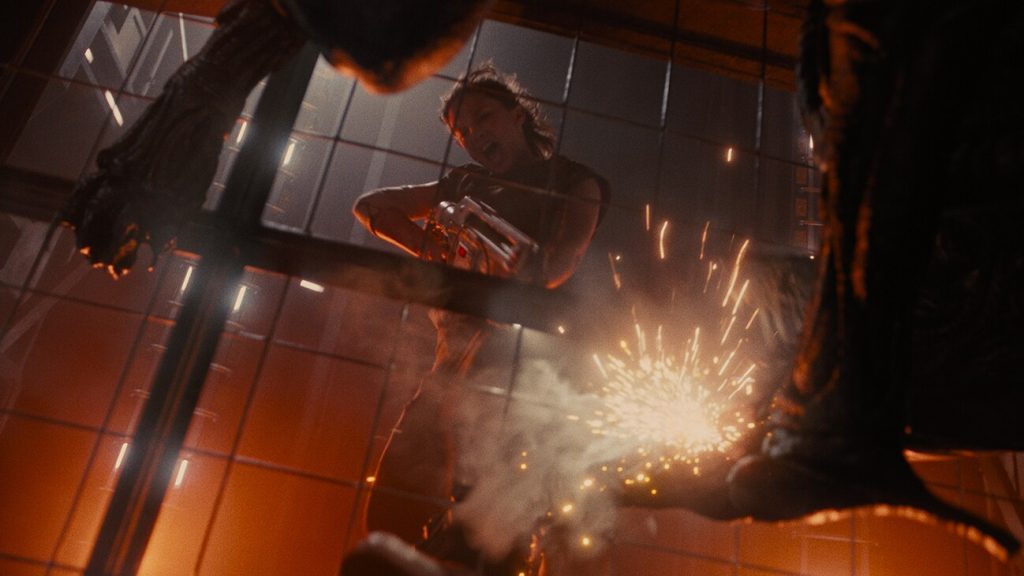
However, not everything in Romulus is as polished as a xenomorph’s dome. Some of the supporting cast members seem to have taken acting lessons from the face-huggers—clingy and one-note. Longtime fans might find themselves groaning at some painfully obvious winks to previous films; it’s like the screenplay is playing bingo, checking off beloved characters and memorable lines with all the subtlety of an M-41A pulse rifle in a china shop. One particular CGI moment stands out… it’s a bold move that is likely to divide opinion faster than an evil alien’s second set of jaws.
In the end, Alien: Romulus is like that friend who shows up to the party with a suspicious-looking egg: it might not be what you expected, but it’s guaranteed to liven things up. (3 out of 5 boats)


